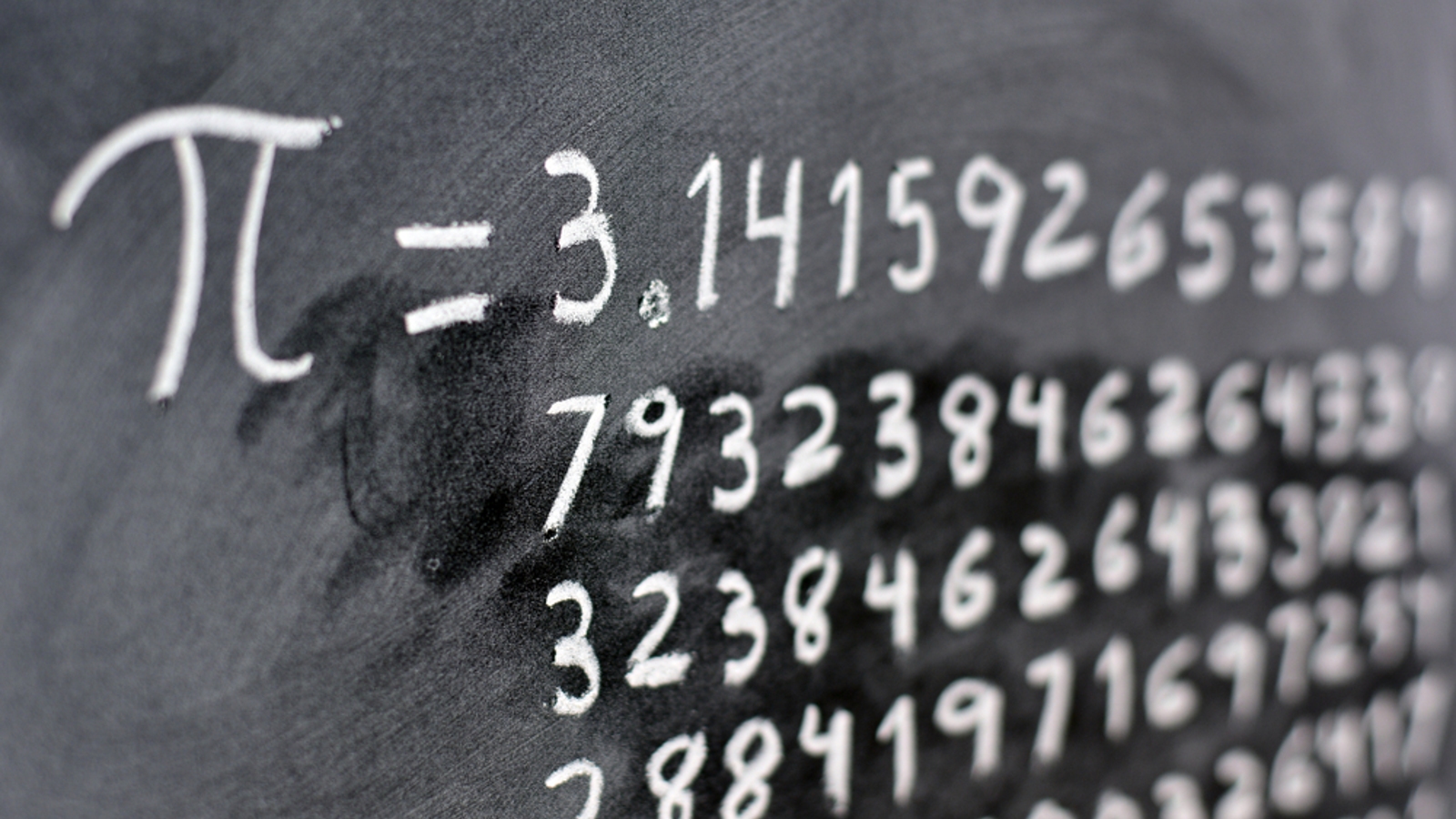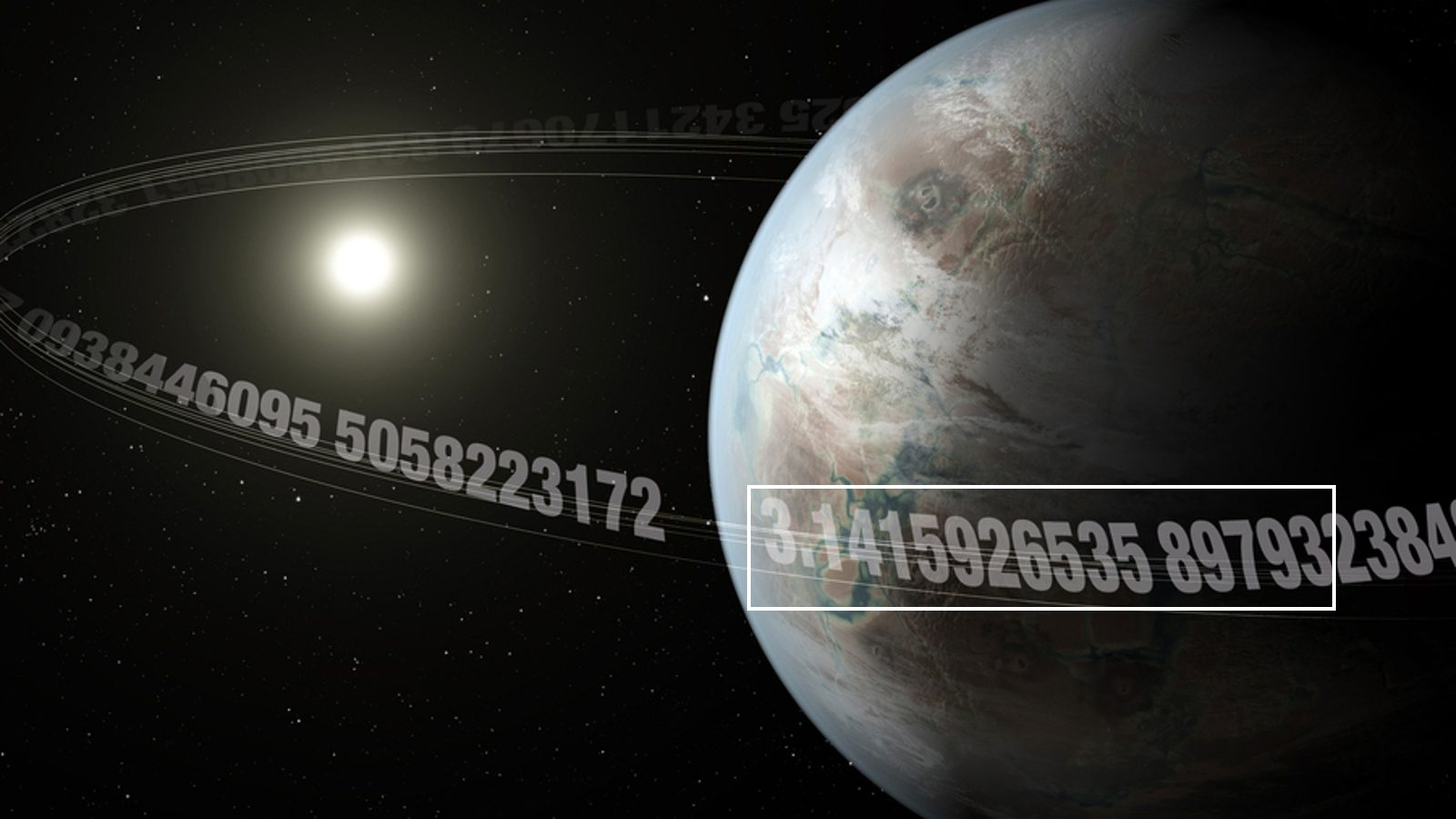Pi calculated to 105 trillion digits, smashing world record
A U.S. computer storage company has calculated the irrational number pi to 105 trillion digits, breaking the previous world record. The calculations took 75 days to complete and used up 1 million gigabytes of data.

A data storage company has decoded more than 100 trillion digits of pi — smashing the world record for calculating the never-ending number. Unraveling this hefty slice of pi required the equivalent computing power of hundreds of thousands of smartphones.
Pi — often abbreviated as 3.14 — is an irrational number, meaning it has infinite nonrepeating decimal places. The value of pi is equal to the circumference of a circle (the distance around its edge) divided by its diameter (the distance between two directly opposite points). It means you can figure out the circumference of any circle if you know its diameter or radius (half the diameter) or vice versa because we know the value of pi.
Unraveling the hidden decimal places of pi has no real impact on mathematics because calculations rarely require more than a few dozen digits. For example, NASA scientists only need to know the first 15 decimal places of pi to understand most of the universe. Instead, calculating the number to its most exact value has long been used as a benchmark for testing new computer programs and data storage systems.
On Pi Day (March 14), Solidigm — a U.S. computer storage company based in California — revealed in a statement that it has calculated pi to approximately 105 trillion decimal places.
To put that into context, if you typed out this number on paper using a 10-point font in one continuous line, the number would be around 2.3 billion miles (3.7 billion kilometers) long, meaning it could stretch from Earth to somewhere between Uranus and Neptune. And in case you were wondering, the 105 trillionth digit of pi is 6.
Related: 12 numbers that are cooler than pi

The calculation, which took around 75 days to complete, was carried out with 36 of the company's proprietary solid-state drives (SSDs) — a storage medium fitted into many of the newest laptops — that stored altogether around 1 petabyte (1 million gigabytes) of data.
Sign up for the Live Science daily newsletter now
Get the world’s most fascinating discoveries delivered straight to your inbox.
Processors are also needed to perform the number-crunching — with more powerful components reducing the time it takes to perform the necessary calculations. However, reliable and large-capacity storage is arguably more important because you need to store a massive amount of data in such a process.
The achievement "was no small feat," Solidigm owner Brian Beeler said in the statement. "It involved meticulous planning, optimization, and execution."
In April 2023, Solidigm matched the record of 100 trillion digits of pi, which was calculated by Google Cloud in 2022.
Before that, the record was 62.8 trillion digits, which were calculated over 108 days by a supercomputer at the University of Applied Sciences of the Grisons in Switzerland in 2021. Going back even further, the record was set at 50 trillion digits in 2020 by Timothy Mullican of Huntsville, Alabama, using his personal computer.
Using the human computer (the brain), the current world record for the most digits of pi memorized by a person is 70,000, which was achieved by Rajveer Meena at the VIT University in India, on March 21, 2015, according to Guinness World Records.
As computers continue to get more powerful in the future, we will inevitably start to uncover larger and larger slices of pi. However, no matter how powerful computers get, we will never be able to unravel the entire number due to its infinite nature.

Harry is a U.K.-based senior staff writer at Live Science. He studied marine biology at the University of Exeter before training to become a journalist. He covers a wide range of topics including space exploration, planetary science, space weather, climate change, animal behavior and paleontology. His recent work on the solar maximum won "best space submission" at the 2024 Aerospace Media Awards and was shortlisted in the "top scoop" category at the NCTJ Awards for Excellence in 2023. He also writes Live Science's weekly Earth from space series.









